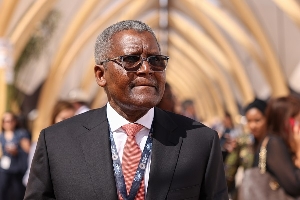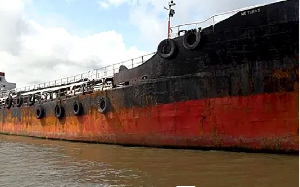Business News of Tuesday, 15 August 2023
Source: thebftonline.com
Parliament wants sustainable funding for petroleum hub agenda
More sustainable funding sources are needed to realise the strategic creation of a Petroleum Hub Development Corporation (PHDC), says Parliament’s Committee on Mines and Energy.
Currently, the PHDC – the anchor body envisioned to position the country as an industry lead in the petroleum and petrochemical products and services value chain of the sub-region – is funded through monies approved by Parliament; internally generated funds; and grants and loans.
In addition, it has also been supported financially by the Ghana National Petroleum Corporation (GNPC) over the years. It is in line with this that the GNPC in its work programme for the 2023 operational year allocated a total amount of US$3million to support the PHDC in 2023.
However, on the back of the funding challenges facing PHDC, Parliament’s Committee on Mines and Energy in its report approving the 2023 work programme of the GNPC noted that the funding provision of US$3million is woefully inadequate.
The committee recommended that the Ministry of Finance should find more sustainable funding sources for the PHDC, in accordance with the latter’s strategic significance.
The total expenditure of GNPC for the 2023 financial year is projected to be US$1.4billion against total revenue of US$1.2billion. This creates a funding gap of US$172.82million.
GNPC has indicated that it plans to finance this gap through the estimated cash balance brought forward, and collection of related debts and term loans.
It is against this development that the committee argued PHDC – which seeks to promote and develop a competitive, sustainable and enabling environment for investments in the midstream and downstream petroleum industry – needs to be grounded financially to fulfil its strategic objective.
The mega-project is expected to be completed by 2030 and includes four oil refineries, two oil-jetties, storage tanks for crude oil and two petrochemical plants.
Located in the Jomoro municipality of the Western Region, the petroleum hub is hoped to become a leading integrated petroleum complex created to add value in the upstream and downstream oil and gas value chain of Africa.
On completion, it will span an area of over 20,000 acres and house a complex web of onshore, offshore and ancillary assets intended to change the face of the petrochemical industry on the continent.
Established by an Act of Parliament, it is also hoped to create some 780,000 jobs during the development phase and beyond – with a significant positive outlook on the economy through an export tax of about US$1.56billion by 2030, as well as an increase in gross domestic product by about 70 percent.












